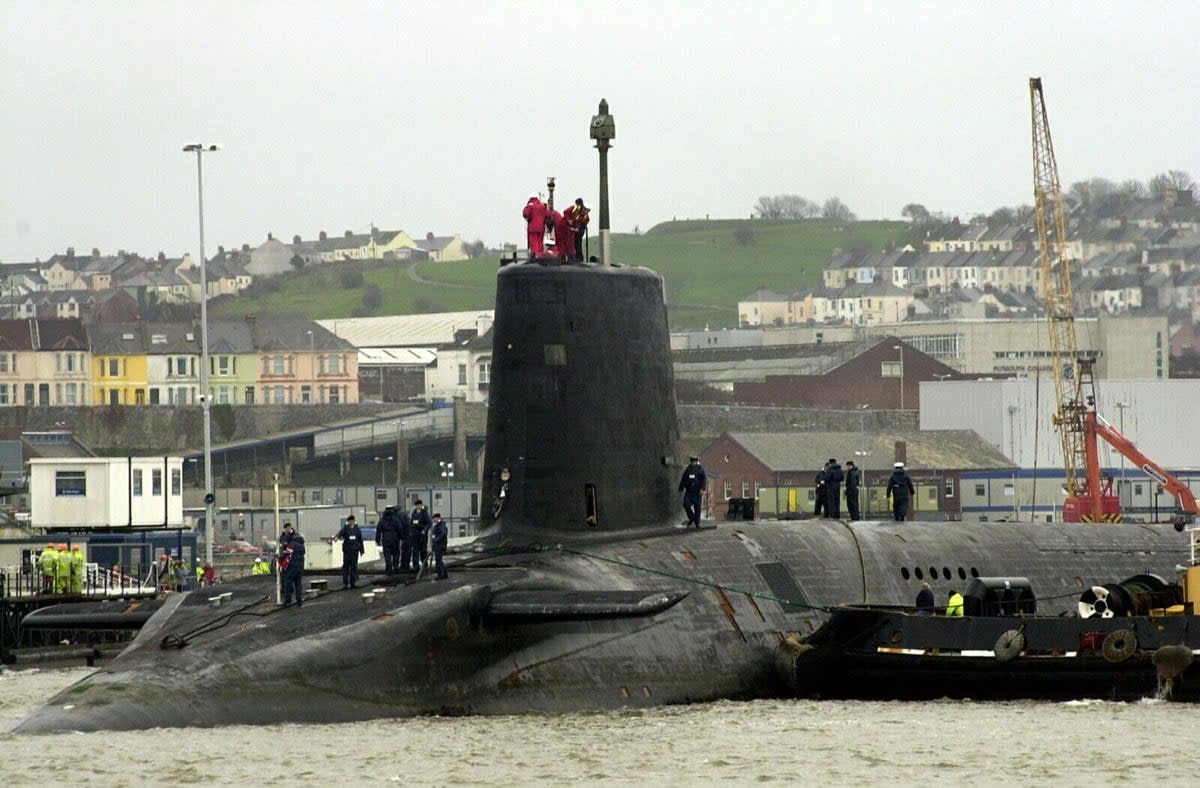Royal Navy orders investigation into nuclear submarine repaired with glue

The Royal Navy has ordered an urgent investigation after workers on a nuclear-armed submarine fixed broken bolts on its vital cooling pipes using super glue.
The botched repairs were spotted during a routine inspection of the 16.000-ton HMS Vanguard.
HMS Vanguard is the first boat of the four-strong Vanguard class – the nuclear-powered submarines which carry the Trident ballistic missile system.
Workers from defence contractor Babcock, who were carrying out maintenance onboard the vessel, had accidentally sheared off the heads of bolts that held insulation to the cooling pipes around the reactor due to over-tightening.
Rather than taking the time to bore out the snapped bolts and report the damage, the workers chose to glue them back in place.
A naval source told The Independent that seven of 3,000 bolts had been glued.
The insulation is crucial to the system that retains heat in the reactor, making it more efficient. Had the bolts come loose, the “worse case scenario” would be the insulation falling off, causing some heat to be lost which would render the rector “ever so slightly less efficient”, the source explained.
“This shortfall in engineering practices has nothing to do with the reactor itself”, they said.
Indeed, at the time of the incident, the reactor was dormant since the vessel was yet to be commissioned — as is still the case.
A dockyard source assured The Independent that there were no nuclear safety implications associated with the bungled fixes and that further onboard testing could continue as usual.
Safety guarantees aside, however, the source explained that the Royal Navy’s disappointment was derived from its principals.
“You do not cut corners with nuclear. That is unequivocal,” they said, insisting that nuclear safety is “always scrutinised to the highest level.”
A Babcock spokesperson called the incident a “huge disappointment”, adding that it had “taken immediate action to resolve it.”
In a statement, they added: “Safety remains our most important priority and we can confirm there was no safety or operational impact from the work.
“We will continue to work closely with our customer, as we have throughout this most complex and critical of programmes.”
In the wake of the discovery, defence secretary Ben Wallace spoke with the CEO of Babcock to “seek assurances about future work.”
A spokesperson said: “As part of a planned inspection a defect was found from work done in the past when HMS Vanguard was in dry dock. It was promptly reported and fixed.”
The naval source insists the MoD’s relationship with Babcock, its second-largest contractor, remains strong.


